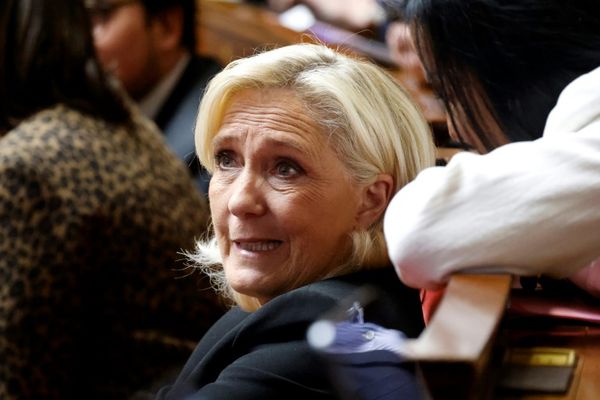
The Biden Administration will officially announce a new 100% tariff on Chinese electric cars today, killing any chance of affordable Chinese-made EVs making it stateside.
The new tariffs, which were first reported by the Wall Street Journal last week, will also take aim at Chinese lithium-ion batteries for EVs. Starting this year, all lithium-ion EV batteries from that country will be subject to a 25% import duty. Graphite, permanent magnets, battery parts and "other critical minerals," including cobalt, zinc and manganese will all get 25% tariffs, too.
Other parts of the sanctions package cover solar cells, cranes, medical products, steel, aluminum and semiconductors.
Get Fully Charged
Chinese EV Showdown
Everyone from President Biden to Elon Musk has expressed fear that cheap Chinese cars could flood the U.S. market. Now, the President has enacted new tariffs to try to give U.S. and other foreign automakers a fighting chance against what he says is an unfairly subsidized Chinese industry.
The immediate pricing impact on certain cars made in China—the Polestar 2, the upcoming Volvo EX30 and a few others—remains to be seen.
All Chinese cars were already subject to a 25% tariff levied under President Trump. While Biden has rolled back certain Trump-era tariffs, this move quadruples the import duty for electric vehicles. That's key, as China is widely perceived to have the world's most mature electric vehicle market. Yet the Biden administration, the European Union and many experts note that China's EV industry was built up in part using lavish government incentives, and they theorize that if left unchecked, its industry could flood our markets with artificially cheap products that drive out local jobs and automakers.

Chinese EV manufacturers received a staggering $57 billion in subsidies between 2016 and 2022, according to a report by consulting firm Alixpartners cited by Reuters. Most large carmaking nations have also kickstarted EV development with government subsidies, but China's programs have been far more generous than its industrial peers.
For context, the Inflation Reduction Act of 2022 is America's most ambitious climate bill to date, and it doesn't come close to China's level of spending. It apportions $43 billion over the next 10 years to make it cheaper for consumers to purchase EVs, energy-efficient appliances, solar panels, geothermal heating and home batteries, as this McKinsey breakdown shows. So while the U.S. will spread $43 billion over five sectors and 10 years, China spent $14 billion more on EVs alone in a six-year period.

Subsidies alone don't tell the whole story, as our own Kevin Williams reported from the Beijing Auto Show. In recent years, China's automakers have pulled ahead with an aggressive focus on batteries and software, while Western automakers have repeatedly proven to be large, old ships that are difficult to turn around—especially when faced with a few quarters of uneven EV growth.
Biden Administration officials worry that Beijing has made an industry with so much overcapacity that it threatens automakers worldwide. Meanwhile, China's automakers are eager to expand globally, realizing correctly that as big as the domestic market is, it has its limits.
Administration officials say that China's EV production capacity is outpacing even best-case-scenario demand, creating artificially low pricing that will choke out competitors. That's already happening in China's home market, where EV brands are fighting for their life. The administration is clearly trying to protect U.S. automakers and their workers from a similar fate.
Yet that isn't the only reason for this move. While White House officials are characterizing the move primarily as a win for American workers—one well-timed for election season, of course—it's shaped heavily by what some call a new Cold War. As Beijing and Washington repeatedly butt heads over a wide swath of issues, the Biden Administration has pursued a strategy of "de-risking" or "de-coupling," wherein it seeks to reduce U.S. dependence on China and strengthen resilience in case of a more serious conflict between the two powers.
It's no surprise, then, that Washington doesn't want America's transportation network relying on cheap Chinese EVs. The package's other targets—including semiconductors, medical products, steel and aluminum—are things that the Biden Administration does not want to be strategically dependent on China for.
Whether the EV tariffs will benefit consumers, however, remains to be seen. While China has undeniably subsidized its EV industry, it now produces high-tech EVs across every price point that its consumers seem to love. Meanwhile, in the U.S., affordability remains one of the biggest barriers to EV adoption. Lack of public investment in charging is another.
Ideally, automakers in the U.S. will take advantage of the tariff wall to build up their own capabilities, eventually launching cars so cheap and good that they don't have to fear Chinese imports anymore.
Yet if it goes the other way, and automakers use this as a justification to continue slow-walking the EV transition, it could have bad side effects for the climate and the long-term international viability of American and European automakers.
Contact the author: Mack.hogan@insideevs.com.







